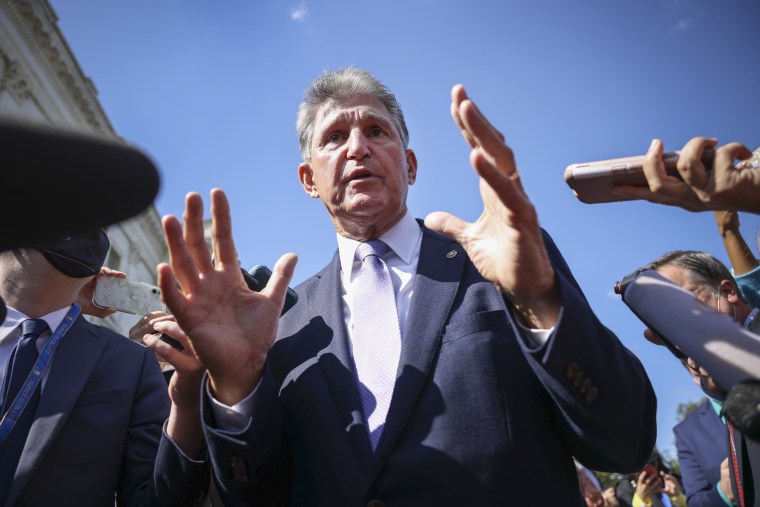Democratic Sen. Joe Manchin of West Virginia appeared on CNN yesterday morning and offered his assessment of the national political landscape. Not surprisingly, it raised a few eyebrows.
"I believe in President Biden. I still do ad I will always because he's a good person. He's here for the right reason. He really is in government for the right reason. We just have to work together; we can't go too far left. This is not a center-left or a left country. We are a center — if anything, a little center-right country. That's being shown, and we ought to be able to recognize that."
In terms of the nation's ideological leanings, Republicans routinely use similar rhetoric. Indeed, it's standard GOP response to Democratic legislative efforts: Democrats shouldn't even try to engage in progressive governance, because it's not what a center-right country wants.
But is that true?
Earlier this year, Gallup released its latest report on Americans' political ideologies and found evidence that, at face value, seemed to bolster Manchin's point. Gallup's data showed 36 percent of Americans described themselves as "conservative," slightly ahead of the 35 percent who described themselves as "moderate." Though the number of Americans who labeled themselves "liberal" has grown steadily in recent decades, they still represented only 25 percent in the survey.
But that doesn't help us much. These labels are inherently subjective and vague. How voters perceive "moderation," for example, is tethered far more to shifting perceptions than anything tangible.
Perhaps a different kind of measurement of public opinion would shed additional light. Putting aside amorphous ideas about ideologies, what are the kinds of policies that enjoy broad public support?
Among the most popular measures in the United States are raising the minimum wage, expanding firearm background checks, raising taxes on the wealthy, and expanding Medicare.
Some might suggest, however, that public-opinion research isn't as reliable as it should be, and the best way to measure Americans' attitudes is through election results. Maybe so.
But the last time I checked, voters elected a Democratic-led House, a Democratic-led Senate, and the Democrats' presidential ticket. In fact, over the last 30 years, only two presidential candidates managed to top 51 percent of the national popular vote: Barack Obama and Joe Biden.
Taking a step further, the Democratic ticket has won the popular vote in seven of the last eight presidential elections. Looking to American history, when was the last time a major political party enjoyed a comparable streak? Never. It literally never happened until Democrats pulled it off.
A center-right country? I'm not seeing it.

